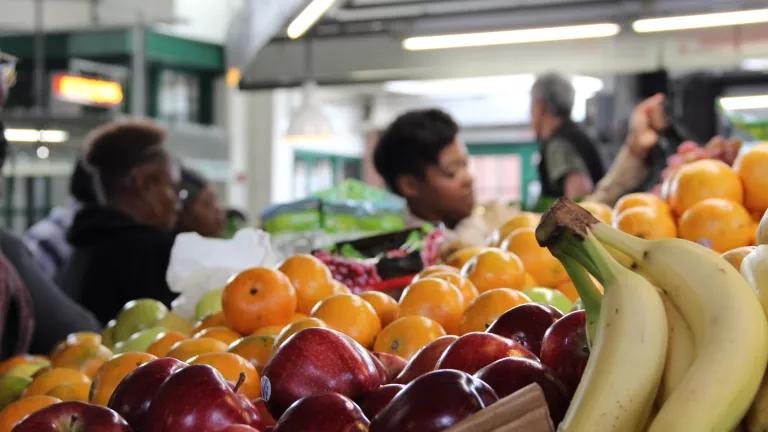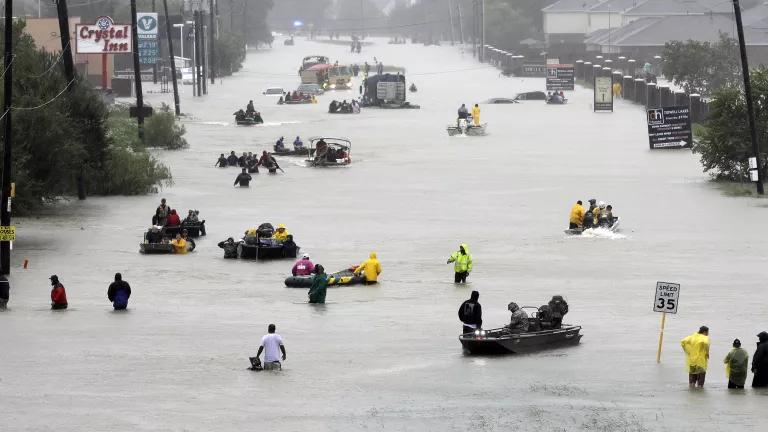Using Metrics to Shape Atlanta's Food Waste Reduction Plan

Co-authored with Natasha Dyer, Senior Recycling Program Coordinator, Mayor's Office of Resilience, City of Atlanta
Up to 40 percent of all food in the United States is wasted. Producing food that we don’t consume swallows up roughly 20 percent of America’s cropland, fertilizers, and agricultural water, and generates greenhouse gas emissions equivalent to 37 million passenger vehicles each year. Yet, 37 million Americans lack consistent access to adequate and nutritious food.
NRDC’s Food Matters Initiative partners with cities to confront food waste. Food Matters is piloting comprehensive, cutting-edge strategies that can be shared and easily replicated. To that end, we created a comprehensive toolkit to help partners and cities develop and implement a variety of policies and programs to tackle food waste locally.
The first and second strategies—and arguably the most critical ones—are to estimate a local baseline level of food waste and assess the potential for increased rescue of surplus food. A baseline is foundational to understanding the scale and nature of the problem, is a prerequisite to assessing progress, and can help inform future program development.
Using a calculator tool NRDC developed based on the models in our original Food Matters research, I worked with the city of Atlanta’s Mayor’s Office of Resilience to estimate a baseline level of food waste in their city. We were also able to estimate how much surplus food in Atlanta could potentially be rescued for re-distribution to community members facing food insecurity. Now with a better understanding of the quantities of wasted food and where it is likely occurring, the city could focus their attention on the solutions which are more closely aligned with the situation in Atlanta.
As in many cities across the US, much of the food wasted in Atlanta occurs in households and consumer-facing businesses like restaurants. Armed with this information, the Mayor’s Office of Resilience proceeded to Food Matters Strategy #7: engaging local businesses.
Natasha Dyer, Senior Recycling Coordinator for the city of Atlanta adds:
“As someone who has mostly focused on the recycling of food waste in my day to day (creating and strengthening composting infrastructure), when I began working with NRDC on the Food Matters project I knew this was going to be the first time I was forced to look at the entire hierarchy of food waste management…and I was excited!
“I would now be trying to devise methods to increase source reduction of food waste and elevate recovery of healthy, nutritious food to feed the City’s food insecure populations. After getting our calculator results that showed we could be increasing capture of edible food otherwise destined for landfill with current recovery infrastructure, I got underway creating a restaurant challenge encouraging restaurants to work on the entire hierarchy (reduction, rescue, and recycling). After 90-days and participation from 6 restaurants at Atlanta’s Hartsfield Jackson airport, our program saved 21,000 meals and saved owners over $62,000.”
With this success, the City is busy creating another restaurant challenge in a residential community that will this time have customer-facing educational tools in the form of table tents and receipt tabs that will share why food matters and is a resource that should never end up in the landfill.
Atlanta’s restaurant challenge is one of a handful of examples of cities engaging consumer-facing food businesses on reducing food waste. New York led the charge with a Mayor’s challenge to restaurants in 2013. Denver recently completed a series of neighborhood restaurant challenges. Nashville has an ongoing Mayor’s Food Saver Challenge including not just restaurants but other food businesses as well. Several other cities and counties throughout the country have business engagement success stories.
I hope that these challenges will not just reduce the amount of food tossed in restaurant dining rooms but will also encourage diners to look for ways to reduce food waste at home. More tips and tricks to get you started on the path to reducing household wasted food can be found at savethefood.com!



